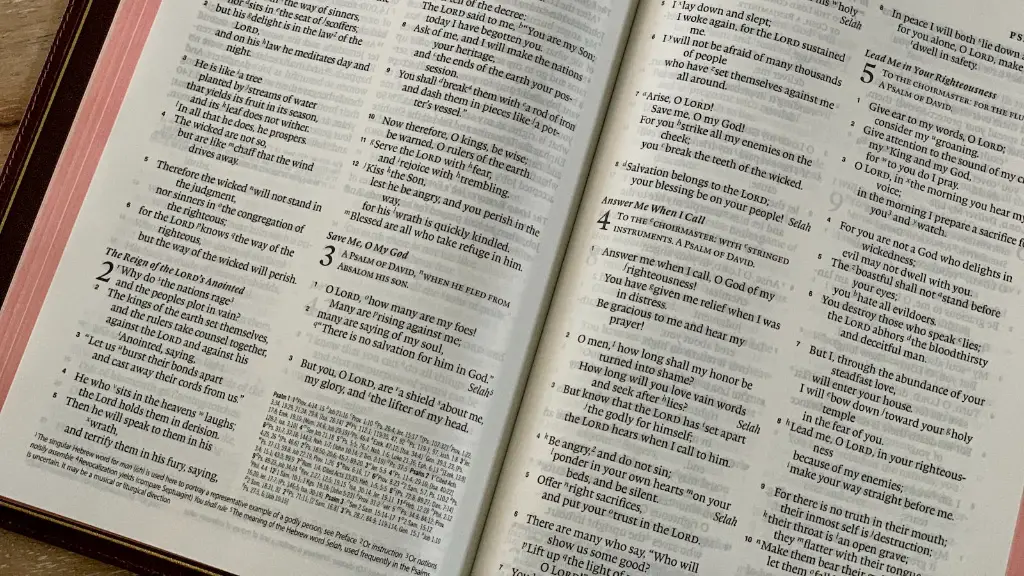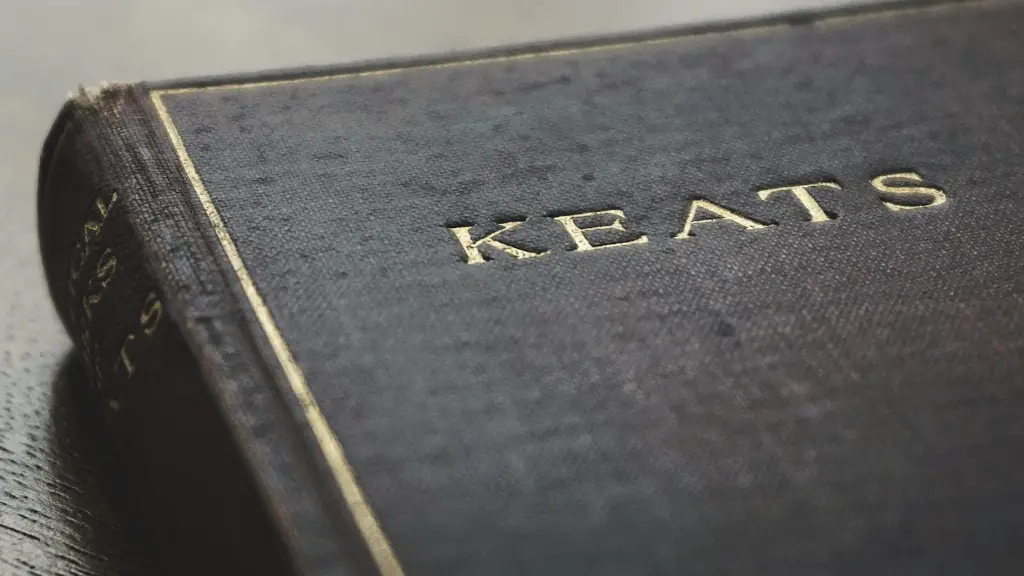Spoken word poetry is a form of poetic performance which is traditionally used to express emotion, beliefs, and experiences. It can be characterized by its unique lyrical content, rhythmic performance, and storytelling. Spoken word poetry gives an opportunity for each individual poet to establish their own voice and to present it in a way that reflects their artistic sensibilities.
The origins of spoken word poetry date back to the early 1900s. At this time, a handful of African-American poets and performers developed a form of poetic performance that combined elements of storytelling and improvisation. These poets became known as the Jazz Poets and are credited with helping to establish the foundations of the contemporary spoken word poetry movement.
In recent years, spoken word poetry has seen a renewed surge in popularity. This is largely due to its ability to capture and express the thoughts and feelings of an individual in a uniquely powerful way. This is one of the defining features of spoken word poetry; it is an intimate and personal form of expression, which is deeply and uniquely connected to the individual. For many poets, speaking to their innermost thoughts and feelings can provide a sense of agency and affirmation, which can be a powerful healing experience.
Spoken word poetry differs from written poetry in a number of ways. The artistic intent of spoken word is primarily to be performed, and thus the words are crafted to be heard and experienced. By contrast, written poetry is crafted to be read and thus has the potential to reach a much broader audience. In both forms, a poet may draw upon various poetic devices, such as alliteration and rhythm, but spoken word poets may also utilize vocal inflection, volume, and physical gestures to convey meaning.
The words used by spoken word poets often come from personal experience, allowing them to communicate their perspective and build an emotional connection with their audience. This can be understood as an act of courage; to be willing to expose one’s vulnerabilities and share their truth is an act of bravery and strength. Through spoken word poetry, performers can not only explore themselves but also challenge and engage with the broader community.
When performed, spoken word poems can have a profound impact on its audience. By exposing themselves to the powerful stories, the audience can gain new perspectives, develop empathy, and engage in meaningful conversations. It can also provide an opportunity to give voice to the voiceless. Through this, spoken word poetry can have a powerful social and political impact.
The significance of audience engagement
Audience engagement is crucial for a successful spoken word poetry performance. An attentive and responsive audience can create an electric atmosphere which can elevate a performance. More importantly, audience engagement provides an opportunity for the poet to dialogue and exchange ideas which can result in profound conversations and foster meaningful connections.
Spoken word poets can also utilize creative strategies to engage their audience. This can include providing a brief introduction to the poem and developing an intimate relationship with their listeners. By adding pauses and engaging with the audience during the performance, a poet can further amplify the impact of their poem and create a lasting experience.
How to structure a spoken word performance
When performing spoken word poetry, it is important to consider how to develop the overall structure of a performance. One option is to observe the traditional three-part structure, which includes a beginning, a middle, and an end. This structure can help bring some clarity and shape to the performance and aid in creating a narrative arc. Another option is to consider how to introduce the poem to create drama and suspense.
When creating a spoken word poem, it is important to consider the overall tone and mood of the piece. Mood and tone can be used to create an emotional intensity and can help make the poem more accessible to the listener. Pauses, improvisation, and storytelling can also be employed to create an immersive experience. The use of language can be a powerful tool to create visuals and combine different mediums such as sound and music.
Promoting spoken word poetry
In today’s digital age, promoting spoken word poetry is easier than ever before. Social media platforms such as Twitter, Instagram and YouTube have become invaluable tools for spoken word poets to connect with their fans and build an audience. By harnessing the power of technology, spoken word poets can also create meaningful connections and share their stories with an even wider audience.
It is also important to consider how to create a live performance space. Platforms such as open mics or poetry slams can provide supportive and encouraging environments for poets to share their stories. These events can also provide a platform for engaging with a broader audience and building a meaningful and sustainable career in spoken word poetry.
Developing a relationship with the audience
Developing a relationship with the audience is essential for a successful spoken word poetry performance. A poet should strive to create an intimate connection with the listener and illustrate their personal stories and experiences. Through this, the poet can invoke empathy, understanding, and facilitate meaningful dialogue.
When performing, it is important to consider the body language used to convey meaning and emotion. Utilizing facial expressions, hand movements, and physical gestures can help bring the poem and story to life and create a powerful experience for the listener.
The impact of tone
The tone of the spoken word poem is an essential element which can help set the mood and create an intimate atmosphere. Tone can be used to convey a particular emotion and to create an engaging and immersive experience. By carefully considering the tone and pacing of a performance, the poet can engage and move their audience, while also ensuring their message is conveyed effectively.
Through spoken word poetry, performers can explore their innermost thoughts and feelings, while also connecting with their audience. It is a powerful form of expression which can be used to spread understanding and empathy, while also inspiring meaningful dialogue.
The power of a two-way dialogue
The power of a two-way dialogue is core to the success of a spoken word poem. By engaging with the audience, the poet can amplify the impact of their words and connect with the listener in a more meaningful way. An engaging two-way dialogue can develop empathy, understanding, and a sense of community.
To create a two-way dialogue a poet must be mindful of their body language as well as their tone and pacing. Inviting the audience to participate and ask questions can also foster a deeper and more meaningful connection. Through developing a two-way dialogue, the poet can deliver their poem in a way that amplifies the impact of their words.
The importance of preparation
Before delivering a spoken word poem, it is important to consider how to prepare for a performance. Important elements such as memorization, rehearsal, and reflection can ensure the poem is ready for delivery. Creating a comprehensive roadmap can also assist in bringing clarity and structure to the performance.
In addition to crafting the poem, it is also essential to consider how to project one’s unique voice. Through vocal training and practice, performers can develop their vocal agility, diction, and expression. These skills can help articulate their stories in a way that is meaningful for them and their audience.
Exploring different mediums and themes
Spoken word poetry can draw upon various mediums and themes to create a powerful experience for its performer and audience. Combining various poetic devices, such as alliteration and rhythm, with sound and music can create a multi-sensory experience and bring the poem to life. Exploring these different mediums can also be an effective way to engage the audience.
Themes can also provide an opportunity to express emotion and explore one’s personal story. Common themes explored in spoken word poetry may include stories of struggle and resilience, love, loss, and joy. By exploring different themes, performers can connect with the broader community, foster meaningful dialogues, and inspire.





